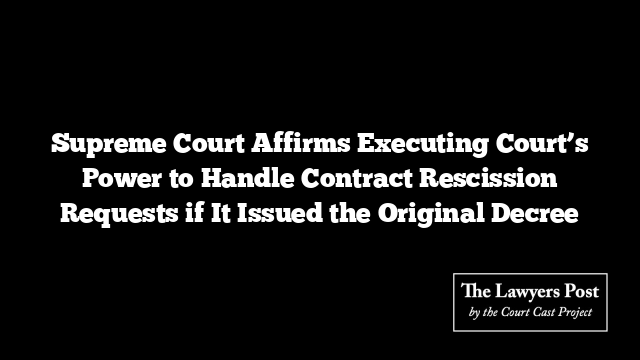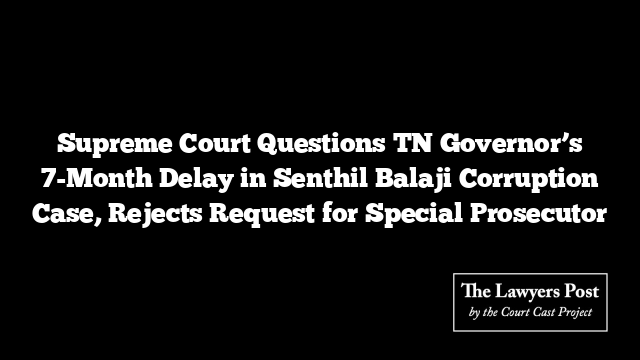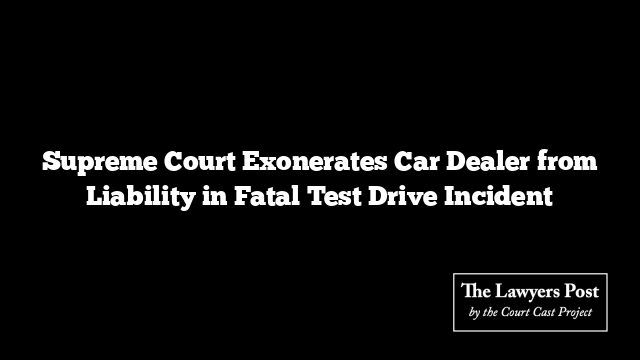In a significant ruling on the Specific Relief Act, 1963, the Supreme Court recently held that an execution court can entertain an application under Section 28 for either rescission of a contract or an extension of the time to deposit the balance sale consideration—provided it is the same court that passed the original decree.
This decision came after a case involving a suit for specific performance, where the decree-holder sought more time to pay the balance consideration for a property sale, despite a decree that directed the appellant to execute a sale deed upon receipt of the payment within two months. The decree-holder approached the executing court instead of the trial court for this extension, triggering an appeal that eventually reached the Supreme Court.
The crux of the matter was whether the execution court had the jurisdiction to deal with the decree-holder’s application for an extension and the appellant’s counter-application for rescission of the contract under Section 28 of the Act. The appellant argued that these matters should have been handled by the original court, not the execution court.
The Supreme Court, however, clarified that while such applications generally fall within the purview of the original suit, an execution court that issued the decree retains the authority to decide them. The Court emphasized that this approach serves the interests of justice and avoids unnecessary delays that could arise from rigid technicalities.
Justice JB Pardiwala and Justice Manoj Misra, in their judgment, underscored that the decree-holder consistently demonstrated a willingness to pay the outstanding amount, and no fault was attributed to them for the delay. Meanwhile, the appellant appeared more focused on challenging the decree rather than fulfilling their obligations. Citing the case of Chanda v. Rattni (2007), the Court reiterated that in situations where there is a genuine reason for a delay in payment, the court may extend the deadline rather than rescind the contract.
The Court ruled that overriding the execution court’s decision solely based on procedural grounds would result in injustice, particularly since the appellant themselves had approached the execution court with a rescission request. Therefore, no interference was deemed necessary, and the appeal was dismissed.
This ruling reinforces the flexibility granted to courts in the interest of substantial justice, allowing them to extend payment deadlines when warranted, even during execution proceedings.





